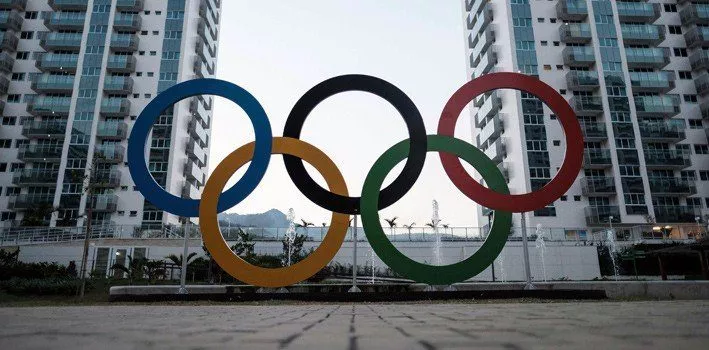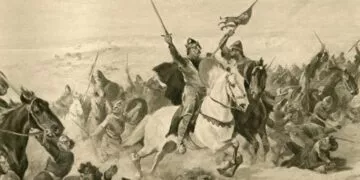Every 4 years nations across the world become riled up and suddenly develop a huge sense of patriotism, why?
What causes this feeling? The Olympic Games.
A collection of the world’s best athletes and teams to compete in some of the world’s toughest and most gruelling sporting events from super speed swimming to never-ending races.
These events show who’s at the top of their field and proudly allow these winners to parade around with a metallic disk emblazoning their chest.
Here we’re going to look at 30 facts about this wonderful and downright mind-blowing experience that we all relish and miss during the other 3 years!
(Yes I know there are 2 games and they run every 2 years but none the less!)
The early Games were a religious festival from 776 B.C. to 393 A.D. In 393 A.D. they became outlawed for being a pagan festival. Baron Pierre de Coubertin started a revival of the games in 1894 A.K.A the modern Olympics.
In 1924 in Chamonix, France, the first winter games were held.
1912 saw the last Olympic gold medals made entirely out of gold.
Spyros Samaras composed The Olympic Hymn and Kostis Palamas added the words. In the 1896 Athens Olympic Games the hymn was first used but the IOC only declared it the official anthem in 1957.
The Olympic rings signify the world’s 5 major regions; Africa, the Americas, Asia, Europe and Oceana, and the colors; blue, yellow, black, green and red, are used in every flag across the world.
The U.S’ James B. Connolly became the first modern Olympic champion in 1896 when he won the hop, step, and jump.
The host city designs the Olympic medals for their games. Each must be at least 60mm in diameter and 3mm thick. The gold medals must be covered in 6g of gold and silver medals must contain 92.5% silver.
In the opening ceremony, the athlete procession has to be led by the Greeks and ended by the host team with all others go in alphabetical order as labelled by the host country’s language.
The IOC gives the privilege of hosting the games to the city not to the country.
IOC members are diplomats of the IOC to their countries not the other way around. This makes the IOC an independent entity.
The U.S., or more specifically CBS, first televised the Olympics during the 1960 Rome games.
An olive branch wreath was given to winners of the Ancient Olympics events.
Awarding the gold, silver and bronze medals started in the 1904 Olympics.
The 1904 St Louis, 1932/1984 LA and Atlanta 1996 games mean that the US has hosted the Olympics more than any other country.
London holds the record of being the only city to have hosted the event 3 times – 1908, 1948 and 2012.
In 1916, 1940 or 1944 there were no games due to the World Wars.
Following the 1979 invasion of Afghanistan by the USSR, the 1980 Moscow Olympics saw 66 nations boycott the games.
Every 2 years the Olympic flame is lit at Greece’s Olympia before going to the host nation, being displayed around the country and then used at the opening ceremony to light the Olympic Cauldron.
Live pigeons were used in the 1900 games’ archery event.
The original games in 1896 held a race to commemorate a Greek soldier Pheidippides who ran 25 miles from Marathon to Athens to let them know of the Athenians success against a Persian invasion.
Like Cricket, the 1900 games saw some random events. Croquet was also on the roster with France winning every medal.
The 2016 games saw Rugby on the cards for the first time since 1924.
In 1921 the founder of the modern games, Pierre de Coubertin, used a Latin phrase ‘Citius, Altius, Fortius (“Swifter, Higher, Stronger”)’ for the Olympic motto.
In the 1920 games, the Olympic flag was first flown.
In Olympia (Greece), a flame was ignited by the sun and kept alight until the closing of the Games. It first appearance in the modern games was in Amsterdam in 1928.
Originally, all wars in the region had to have a ceasefire during the Games and they were held to honour Zeus.
Priestess of Demeter was the only married woman allowed to watch the ancient games, with any others who were caught being thrown over a cliff.
In the 1896 games, Soccer was to be played but there were no teams to play the event.
Cricket was last in the games in 1900. 2 countries entered; Britain and France, they took gold and silver respectively.
The London games in 1908 saw the first opening ceremony.

Every time I watch Michael Phelps swim, or Bolt being very aptly named, it gives the view such a rush.
You feel like you can take on the world and want to try and get yourself into a new and more healthy and fit lifestyle, now I know we’re all probably watching these events with a bowl of chips and a can of Coke but that’s not the point.
The events display just how far our bodies will go if we treat them properly.

















